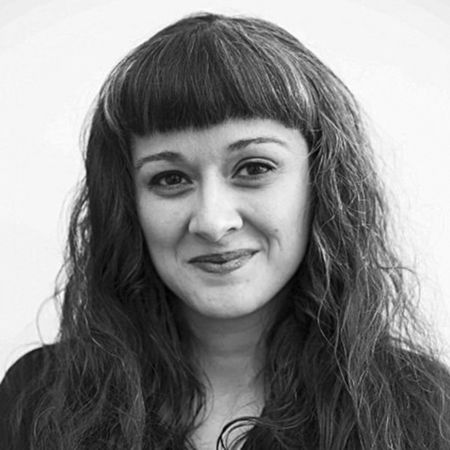In his 2019 State of the Nation address, President Cyril Ramaphosa announced that the government would begin working with business and labour in industries like the gas, chemicals and plastics and agricultural sectors to develop industry master plans to increase growth.
Department of Trade, Industry and Competition (DTIC) Minister Ebrahim Patel and his counterpart in the Department of Agriculture, Land Reform and Rural Development, Thoko Didiza, spearheaded the creation of a master plan for the sugarcane industry. The plan was approved in late 2020 after months of consultations with industry players, including the South African Canegrowers’ Association.
The plan proposes at least a three-year moratorium on increases to the country’s health promotion levy, says the association in its latest annual report.
This proposal does not appear in the plan itself. Instead, South African Canegrowers’ Association CEO Thomas Funke told Maverick Citizen that a moratorium on increases to the levy is part of the document’s stated strategy to create a two- to three-year window to allow the sector to restructure.
The DTIC did not respond directly to whether the proposed moratorium reflects its official position. Instead, department spokesperson Bongani Lukhele said that any proposals emerging from the plan would be tabled with the appropriate government departments for consideration.
He said the master plan’s overall aim was to develop industry proposals for long-term approaches to taxing sugar products to help provide sugar producers and investors with a degree of market certainty.
Introduced in 2018, South Africa’s health promotion levy of 11% on sugary drinks adds about 46 cents to the price of an average can of original taste Coca-Cola, for example. The sugary beverage tax only applies to drinks with more than four grams of sugar per 100ml and excludes natural fruit juices and sweetened dairy products.
Multiple studies have found that regularly consuming sugary beverages can increase a person’s risk of developing type 2 diabetes, heart disease and other non-communicable diseases. Today, Statistics South Africa data shows that conditions like these are some of the country’s leading causes of natural death.
A recent study in The Lancet found that the health promotion levy led to a reduction in sugary beverage purchases among urban households. This decline in purchases, researchers explain, was starkest among poorer consumers who also shoulder the burden of non-communicable diseases in the country and have poor access to healthcare.
Previous studies found that the levy led people to purchase fewer sugar-filled drinks and that it prompted the beverage industry to reduce the amount of sugar in its products, both of which helped reduce people’s sugar intake.
The health promotion levy, however, has not kept pace with inflation and has not increased since it was introduced in 2018. Public health experts warn that without an increase, the levy’s power to shape people’s behaviour becomes weaker.
/file/dailymaverick/wp-content/uploads/2021/10/MC-Gonzalez-food-investigate-DM-Graphic_Diagram-Final.png)
The health promotion levy continues to receive stiff pushback from segments of the food industry.
A report commissioned by the National Economic Development and Labour Council found that the health promotion levy cost the sugar sector about 16,600 jobs in its first year.
The report, which focused on the levy’s economic impact, did not factor in the costs of non-communicable diseases to the economy. In 2018 alone, a study published in the journal Global Health Action found that South Africa spent almost R3-billion treating people living with diabetes in 2018, for instance.
In 2016, Treasury had initially proposed that South Africa implement a health promotion levy of 20% on sugary drinks in line with the World Health Organization’s recommended upper bound for levies like this.
However, by the time the policy was a bill, industry pressure had led the government to propose a levy of almost half the amount initially proposed and excluded 100% fruit juices, says Safura Abdool Karim. Abdool Karim is a researcher at the SAMRC/Wits Centre for Health Economics and Decision Science (Priceless SA).
Abdool Karim, who studies food industry tactics, says that professional food industry associations are particularly powerful in shaping policy.
“The role of industry associations in the South African landscape, particularly when it comes to non-communicable disease prevention policies, cannot be overstated,” she says. “They are the centre point of a lot of the lobbying activity… but beyond that, they have particular channels of access to actors like the department of health, for example, that are exclusive to them.”
Abdool Karim says the national health department has regular meetings with the food industry that are not open to public health experts or civil society. The health department did not respond to requests for comment.
No public health experts were involved in drafting the sugarcane master plan, Lukhele confirmed to Maverick Citizen. At least six professional associations, including the South African Canegrowers’ Association, the South African Sugar Association and the Consumer Goods Council of South Africa helped write the plan. DM/MC





 Kenya's sugar industry started to decline in the 1980s, creating a massive shortfall between production and demand. (Photo: Luis Ascui / Getty Images)
Kenya's sugar industry started to decline in the 1980s, creating a massive shortfall between production and demand. (Photo: Luis Ascui / Getty Images)